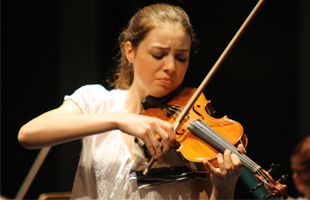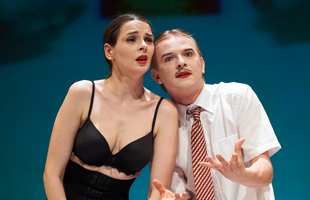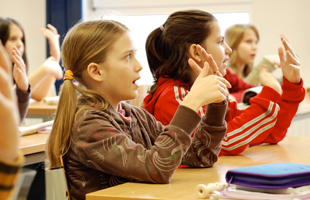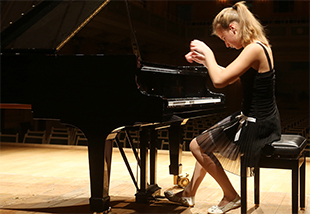Angelika Moths
Angelika Moths studied:
- Harpsichord at the Royal Conservatoire in The Hague, where she gained her Diplom under Tini Mathot/Ton Koopman,
- Basso continuo with Jesper Christensen and “Theory of Early Music” at the Schola Cantorum Basel,
- Music, Art and Islamic Studies at the University of Basel, where she focussed on music of the Middle Ages, the French chanson of the 15th century, the seconda pratica, and Arabic music theory.
She worked at Basel’s Institute of Musicology from 2003 to 2005 and as an academic assistant at the Schola Cantorum from 2002-2007, where she also taught the subject “Baroque/Classical Notation”. She was interim professor for the Theory of Early Music at the University of the Arts Bremen from 2007-2012. Moths worked as a lecturer at the University of Basel and at the universities of music in Leipzig, Rostock, Cologne, and Trossingen. She was visiting lecturer at the Mainz School of Music in winter semester 2015/16 and a teaching and research assistant at Heidelberg University’s Department of Musicology from 2017-2019.
She is lecturer for music theory at the Zurich University of the Arts. Angelika Moths gives courses in Gregorian singing and the polyphony of early music and is a passionate palaeographer.
As a musician, she is involved in various ensembles in the field of historical performance and oriental music. She conducted the revival of the opera Zenobia by Tommaso Albinoni in Damascus (Syria) in 2008 and Amazonki by Józef Elsner in Lviv (Ukraine) in spring 2015. Her practical work in Ukraine led to collaboration with the Haliciana Schola Cantorum, where she initiated and held the symposium Ex umbra in solem in November 2017, which concentrated on musical writings that had been lost, rediscovered or required new assessment. This work consolidated her collaboration with several Ukrainian institutions.
At the University of Zurich’s Department of Musicology she was first employed as a lecturer as of 2019, and then as a teaching and research assistant from 2021 onwards. In addition to her research work, she is responsible for the teaching of the subjects Historical Music Theory and Notation.
Back to TEACHERS







